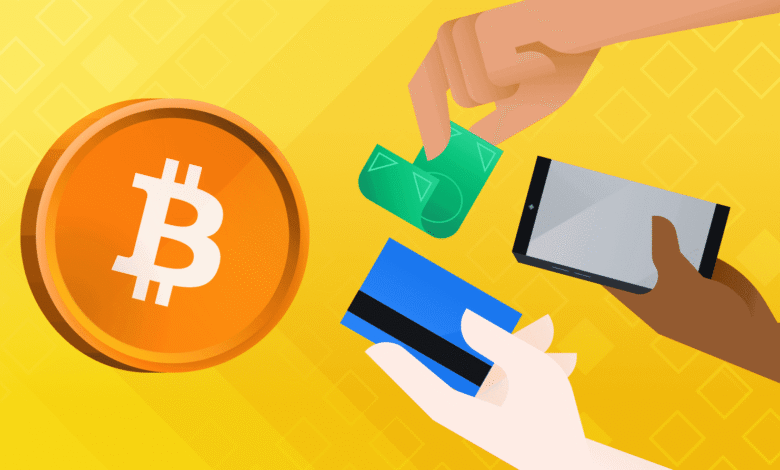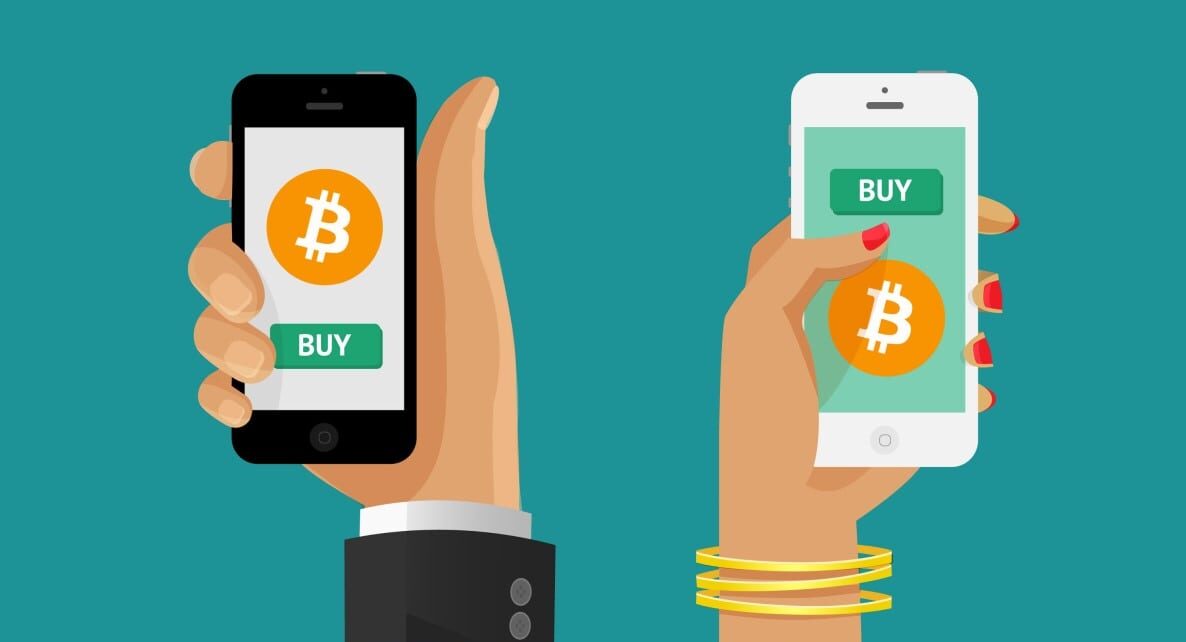How to Buy Cryptocurrency in Germany Safely and Legally (2025)

Germany has emerged as one of Europe’s most crypto-friendly nations, establishing clear regulatory frameworks that Buy cryptocurrency in Germany trading accessible and compliant with legal requirements for German residents. With the European Union’s Markets in Crypto-Assets (MiCA) regulation set to take effect in 2024 and Germany’s progressive stance on digital assets, 2025 presents an ideal time for beginners to enter the cryptocurrency market.
This comprehensive guide covers everything German residents need. Crypto Regulation 2025, to know about purchasing cryptocurrencies safely and legally, from understanding local regulations to choosing the right platforms and implementing proper security measures.
Germany’s Cryptocurrency Landscape
Legal Status and Regulatory Framework
Germany officially recognizes cryptocurrencies as “crypto-assets” under the German Banking Act (Kreditwesengesetz). The Federal Financial Supervisory Authority (BaFin) oversees cryptocurrency regulation, ensuring consumer protection while fostering innovation in the digital asset space.
Key regulatory highlights for 2025 include:
The MiCA regulation provides harmonised rules across EU member states, enhancing investor protection and market integrity. German crypto service providers must obtain proper licensing from BaFin, ensuring compliance with anti-money laundering (AML) and know-your-customer (KYC) requirements. Cryptocurrency gains are subject to German tax laws, with specific rules for short-term and long-term holdings.
Tax Implications for German Crypto Investors
Understanding German cryptocurrency taxation is crucial for compliance. The Federal Ministry of Finance has established clear guidelines that treat crypto assets as private sale transactions (private Veräußerungsgeschäfte).
For individual investors, cryptocurrency profits are tax-free if held for more than one year. Short-term gains (less than 12 months) are taxable as ordinary income, with an annual exemption threshold of € 600. Professional crypto traders may face different tax treatment under the rules governing commercial income.
Choosing the Right Cryptocurrency Exchange
Top Regulated Exchanges for German Users
Selecting a reputable, regulated exchange is fundamental to safe cryptocurrency investing. Several platforms cater to German users, offering full regulatory compliance and robust security measures.
- Coinbase stands as one of the most trusted exchanges globally, offering a user-friendly interface and comprehensive educational resources. The platform supports major cryptocurrencies, including Bitcoin, Ethereum, and numerous altcoins, with strong security protocols and insurance coverage for digital assets.
- Kraken offers advanced trading features alongside beginner-friendly options, featuring competitive fees and an extensive selection of cryptocurrencies. The exchange maintains strong regulatory compliance and provides both spot trading and futures markets for experienced traders.
- Binance remains the world’s largest cryptocurrency exchange by trading volume, offering an extensive range of digital assets and trading pairs. The platform offers both basic and advanced trading interfaces, catering to novice and experienced traders alike.
- Bitstamp offers one of the longest track records in cryptocurrency trading, established in 2011 with a focus on security and regulatory compliance. The exchange provides a straightforward trading experience, along with competitive fees and robust customer support.
Key Factors to Consider When Choosing an Exchange
Security measures should be your primary concern when selecting a cryptocurrency exchange. Look for platforms that implement two-factor authentication (2FA), cold storage for user funds, and conduct regular security audits. Insurance coverage for digital assets offers an additional layer of protection against potential data breaches.
Fee structures vary significantly among exchanges, which can impact your overall investment returns. Compare trading fees, deposit and withdrawal costs, and any additional charges for specific services. Some platforms offer reduced fees for high-volume traders or holders of their native tokens.
Cryptocurrency selection determines your investment opportunities. While Bitcoin and Ethereum are widely available, access to altcoins and emerging projects varies across different platforms. Consider your investment strategy when evaluating available trading pairs.

Customer support quality becomes crucial when issues arise—research user reviews and test response times for different support channels. Platforms with comprehensive educational resources can significantly benefit new cryptocurrency investors.
Step-by-Step Guide to Buying Cryptocurrency
Creating and Verifying Your Account
Account creation typically involves providing basic personal information, including full name, email address, and phone number. Most exchanges require email verification before allowing platform access.
The KYC verification process requires submitting government-issued identification documents such as a German passport or national ID card. Additional documentation may include proof of address, such as utility bills or bank statements. This process typically takes 24-48 hours for approval.
Enhanced verification levels may unlock higher trading limits and additional features. Some platforms offer instant verification for German users through electronic ID (eID) systems, streamlining the onboarding process.
Funding Your Exchange Account
- Bank Transfer (SEPA) remains the most cost-effective method for funding cryptocurrency purchases in Germany. Most exchanges support Single Euro Payments Area (SEPA) transfers, which are typically processed within 1-2 business days with minimal fees.
- Credit and Debit Cards offer instant funding but usually carry higher fees ranging from 1.5% to 3.5% of the transaction amount. This method suits users prioritising speed over cost efficiency.
- PayPal Integration is available on select platforms, providing a familiar payment processing experience for users who are comfortable with traditional digital payment methods. Fees and processing times vary by exchange.
- Cryptocurrency Deposits allow users to transfer existing digital assets from external wallets or other exchanges. This method requires careful attention to wallet addresses and network compatibility.
Executing Your First Cryptocurrency Purchase
Market orders execute immediately at the current market price, providing instant transaction completion but potentially incurring higher costs during volatile periods. This order type suits users prioritising speed over price optimisation.
Limit orders allow setting specific purchase prices, potentially securing better rates but requiring patience for order fulfilment. This approach benefits users willing to wait for favourable market conditions.
Dollar-cost averaging (DCA) strategies involve regular, smaller purchases over time, reducing the impact of market volatility on your overall investment. Many exchanges offer automated DCA features for systematic investing.
Essential Security Best Practices
Wallet Security and Storage Solutions
Hardware wallets represent the gold standard for cryptocurrency security, as they store private keys offline and protect against online threats. Popular options include Ledger Nano S Plus, Trezor Model T, and KeepKey, each offering robust security features and multi-currency support.
Software wallets provide convenient access to cryptocurrencies while maintaining reasonable security standards. Desktop wallets, such as Electrum (for Bitcoin) and Exodus (multi-currency), offer complete control over private keys through user-friendly interfaces.
Mobile wallets enable cryptocurrency access on smartphones, suitable for small amounts and frequent transactions. Popular options include Trust Wallet, Atomic Wallet, and exchange-specific mobile applications.
Web wallets, although convenient, should be used with caution as they involve trusting third parties with private key management. Only use reputable web wallet providers with strong security track records.
Account Security Measures
Two-factor authentication (2FA) adds an essential security layer beyond passwords. Google Authenticator, Authy, and hardware-based solutions like YubiKey provide robust 2FA implementation for exchange accounts and wallets.
Strong password policies should include unique, complex passwords for each cryptocurrency-related account. Password managers like 1Password or Bitwarden help maintain secure, unique credentials across multiple platforms.
Regular security audits of your cryptocurrency holdings and accounts help identify potential vulnerabilities. Review account activity, update security settings, and regularly monitor for suspicious transactions.
Understanding Cryptocurrency Fundamentals
Major Cryptocurrencies for Beginners
- Bitcoin (BTC) serves as the original cryptocurrency and digital gold standard, offering the most established network and widespread acceptance. Its limited supply of 21 million coins and store-of-value properties make it popular among institutional and retail investors.
- Ethereum (ETH) powers the world’s largest innovative contract platform, enabling decentralised applications (dApps) and decentralised finance (DeFi) protocols. The recent transition to Proof-of-Stake consensus has improved energy efficiency and transaction throughput.
- Cardano (ADA) focuses on academic research and peer-reviewed development, offering a sustainable blockchain platform with innovative contract capabilities. The platform emphasises environmental sustainability and scalability.
- Solana (SOL) offers high-speed, low-cost blockchain infrastructure for decentralised applications (dApps) and decentralised finance (DeFi) protocols. Its innovative consensus mechanism enables thousands of transactions per second with minimal fees.
Blockchain Technology Basics
Blockchain technology creates immutable, distributed ledgers recording all cryptocurrency transactions. Each block contains transaction data, timestamps, and cryptographic hashes linking to previous blocks, creating an unalterable chain of records.
Decentralisation eliminates single points of failure by distributing network control across numerous nodes worldwide. This architecture enhances security, reduces censorship risks, and promotes financial sovereignty.
Consensus mechanisms validate transactions and secure blockchain networks. Proof-of-Work (used by Bitcoin) and Proof-of-Stake (used by Ethereum 2.0) represent the most common validation methods, each with distinct advantages and trade-offs.
Investment Strategies and Risk Management
Developing a Cryptocurrency Investment Plan
Risk assessment should precede any cryptocurrency investment, taking into account your financial situation, investment timeline, and risk tolerance. Cryptocurrency markets exhibit high volatility, requiring careful position sizing and risk management.
Portfolio diversification across different cryptocurrencies, market sectors, and asset classes can reduce overall investment risk. Consider allocating small percentages of your total investment portfolio to cryptocurrency initially.

Long-term holding (HODLing) strategies prioritise fundamental value and technological adoption over short-term price fluctuations. This approach suits investors believing in cryptocurrency’s long-term potential while avoiding day-trading stress.
Common Mistakes to Avoid
Emotional trading, driven by the fear of missing out (FOMO) or panic selling, often leads to poor investment outcomes. Develop disciplined investment strategies based on research rather than market emotions.
Overinvesting beyond your financial means can create dangerous situations during market downturns. Only invest amounts you can afford to lose completely without affecting your financial stability.
Neglecting security measures exposes investments to theft and loss. Prioritise proper wallet security, exchange selection, and account protection from the beginning of your cryptocurrency journey.
Advanced Topics for Continued Learning
DeFi and Emerging Technologies
Decentralised Finance (DeFi) protocols enable traditional financial services without intermediaries, including lending, borrowing, and trading directly on blockchain networks. Platforms like Uniswap, Aave, and Compound demonstrate the potential of DeFi for financial innovation.
Non-Fungible Tokens (NFTs) represent unique digital assets verified on blockchain networks, enabling new forms of digital ownership and creativity. Understanding NFT mechanics can offer valuable insights into the broader applications of blockchain technology.
Layer 2 scaling solutions address blockchain scalability challenges by processing transactions off the main chain while maintaining security guarantees. Solutions like Lightning Network (Bitcoin) and Polygon (Ethereum) significantly reduce transaction costs and increase throughput.
Summary
Cryptocurrency markets evolve rapidly, requiring continuous learning and adaptation. Follow reputable news sources, such as CoinDesk and Cointelegraph, as well as official project announcements, for accurate information.
Join cryptocurrency communities on platforms like Reddit, Discord, and Telegram to engage with other investors and learn from experienced community members. UK Crypto Regulations, Exercise caution with investment advice from unverified sources.
Attend cryptocurrency conferences, webinars, and educational events to deepen your understanding and network with industry professionals. Events like the Bitcoin Conference and the Ethereum Community Conference provide valuable learning opportunities.
FAQs
Q1. Is it legal to buy cryptocurrency in Germany?
Ans: Yes, buying cryptocurrency is completely legal in Germany. The country has established clear regulatory frameworks through BaFin and complies with EU-wide MiCA regulations, making it one of the most crypto-friendly jurisdictions in Europe.
Q2. What’s the minimum amount needed to start buying cryptocurrency?
Ans: Most exchanges allow purchases starting from €10-25, making cryptocurrency accessible to beginners with small budgets. You can start with small amounts and gradually increase your investments as you gain experience and confidence.
Q3. How are cryptocurrency gains taxed in Germany?
Ans: Cryptocurrency profits are tax-free if held for more than one year. Short-term gains (less than 12 months) are taxable as ordinary income, with a €600 annual exemption. Professional traders may face different tax treatment.
Q4. Which cryptocurrency should beginners buy first?
Ans: Bitcoin and Ethereum are typically recommended for beginners due to their established track records, widespread acceptance, and educational resources. Start with major cryptocurrencies before exploring altcoins.
Q5. How long does account verification take on German exchanges?
Ans: KYC verification typically takes 24-48 hours for German residents. Some exchanges offer instant verification through electronic ID systems, while others may require additional documentation review.
Q6. Are cryptocurrency investments insured in Germany?
Ans: While deposits aren’t covered by traditional deposit insurance, many exchanges carry private insurance for digital assets. Hardware wallets and proper security practices provide the best protection for your investments.
